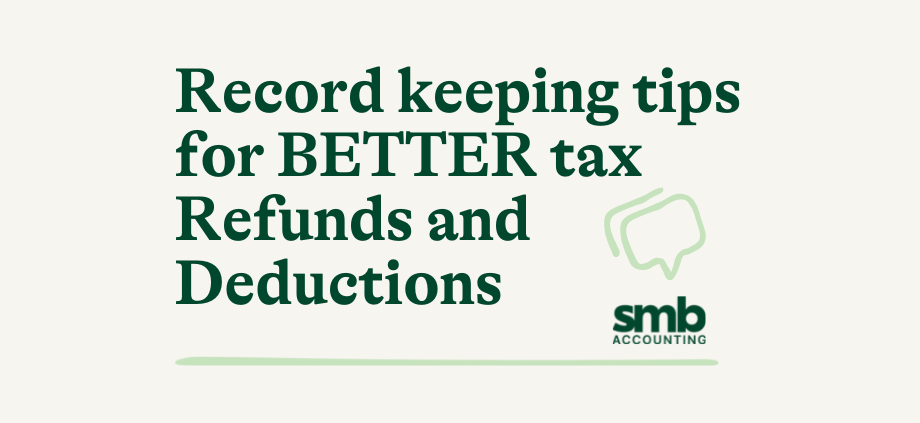Record Keeping Tips for Better Tax Refunds and Deductions
Tax deductions are very helpful resources at the end of the taxable year. To get the correct amount for claiming, it’s important to keep an accurate record of your books. Good record-keeping is important anyway to make sure you are abiding by the proper regulations.
If you don’t properly calculate your deductions, you essentially lose money. Statistics even show that Australians miss out on millions of unclaimed tax deductions every year. Throughout the audit process, you’ll rely heavily on the records you’ve kept to get what you’re entitled to.
Read on for some tips to better record-keeping in preparation for tax time.
Keep Your Receipts Throughout the Year
You should make it a habit to store your receipts safely throughout the year. This will give you the proper references for your claims, especially if the Australian Taxation Office (ATO) brings any of your claims into question. This will help prevent you from paying any more tax than you have to.
A good way to organise this is in chronological order. This way, you can easily get a reference of your receipts from the date and time of the transaction. It also ensures that you can keep track of your expenses as you go along. You can also segregate your receipts under categories depending on the type of expense.
Make sure you also keep a digital backup of your receipts for safety. In case of loss or damage, you can always refer to your digital files.
Record All of The Income You Receive During the Year
You also need to keep track of all the income you receive. This includes any salary or wages from your regular job. Beyond that, you also need to take note of investments, managed funds, allowances, dividends, and earnings from any rental properties or room letting.
If you have a full-time job, your employer will be responsible for providing you with an annual statement with all of your yearly earnings. If you have a managed fund or real estate property, you should make sure you get that same summarised statement from your agent or fund.
You should also note that any asset you acquire or dispose of should have a record with you. It is recommended by the ATO to keep these documents for five years from the day you are no longer required to produce any capital gains tax (CGT).
Record All Your Tax Deductible Expenses
Finally, you need to make sure you have proof of any and all tax-deductible expenses. This comes down to receipt keeping again. If you’re not sure what applies, the following categories are considered eligible for a tax refund:
- General expenses, including charity donations, private health cover, income protection costs, tax agent fees.
- Work-related expenses such as license and certification fees, union fees, professional memberships, and gifts.
- Expenses on education, like course fees, textbooks, travel costs, food and accommodation during school trips or lessons, and library fees.
- Work-related purchases and travel expenses. This includes any equipment for your office, like furniture, organisers, computers, software, technical tools related to your field, and any electronics. Any purchase worth more than three hundred dollars will require a claim with their decline in value incorporated. For travel, this includes tolls, vehicle costs, parking, public transportation fares, flight expenses, and food and accommodations for work trips. Those that work from home can also make claims for internet, postage, and electricity on top of the previously mentioned items.
- Newly acquired asset costs and expenses for rental properties and investments.
- Recently disposed of or sold assets.
- Expenses on protective clothing and uniforms.
- Any expenses for disability and aged care.
Conclusion
If you can stay on top of the items mentioned above, you’ll have a much easier tax season. Calculating your income tax returns and deductibles can do wonders for your financial health in the long run. A good accountant should be able to help you get through these documents easily and calculate them properly.
To prepare for the next tax season and make sure you have the right audit process, reach out to SMB Accounting. We provide individual tax returns and small business accounting. Contact us and we’ll connect you with an accountant from the Sunshine Coast ready to accomplish your accounting needs.

